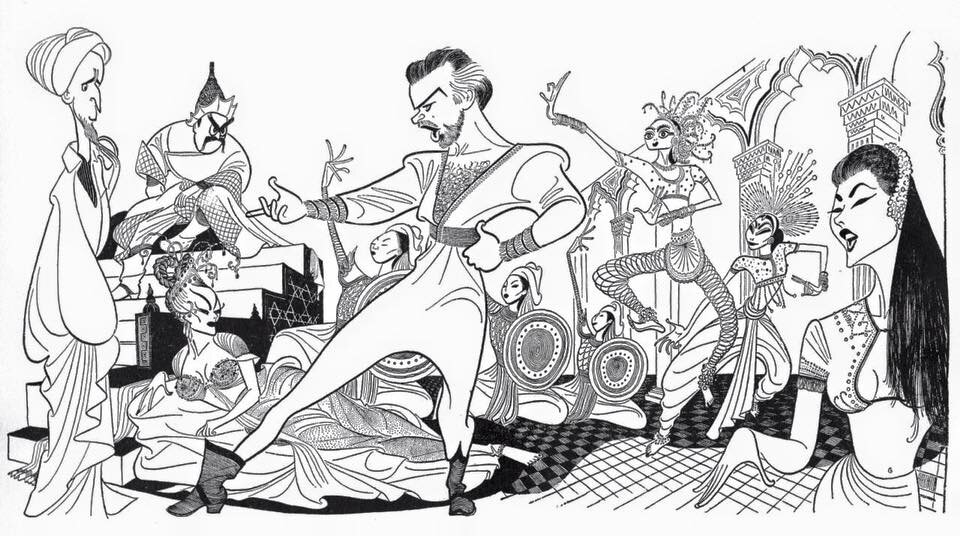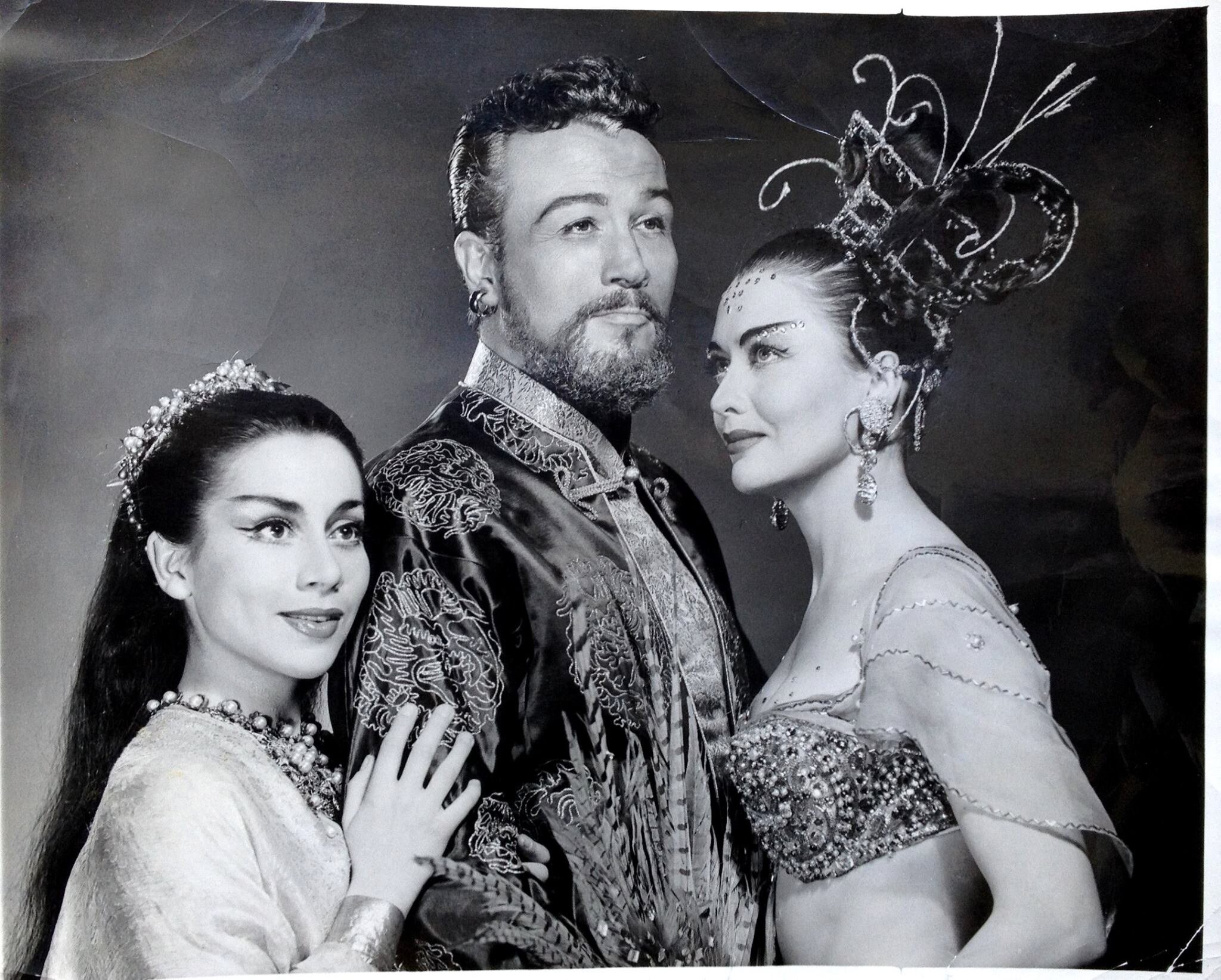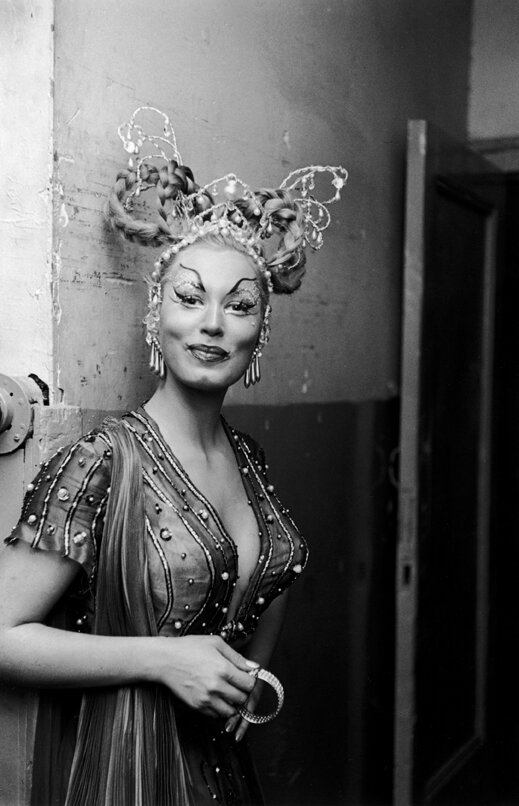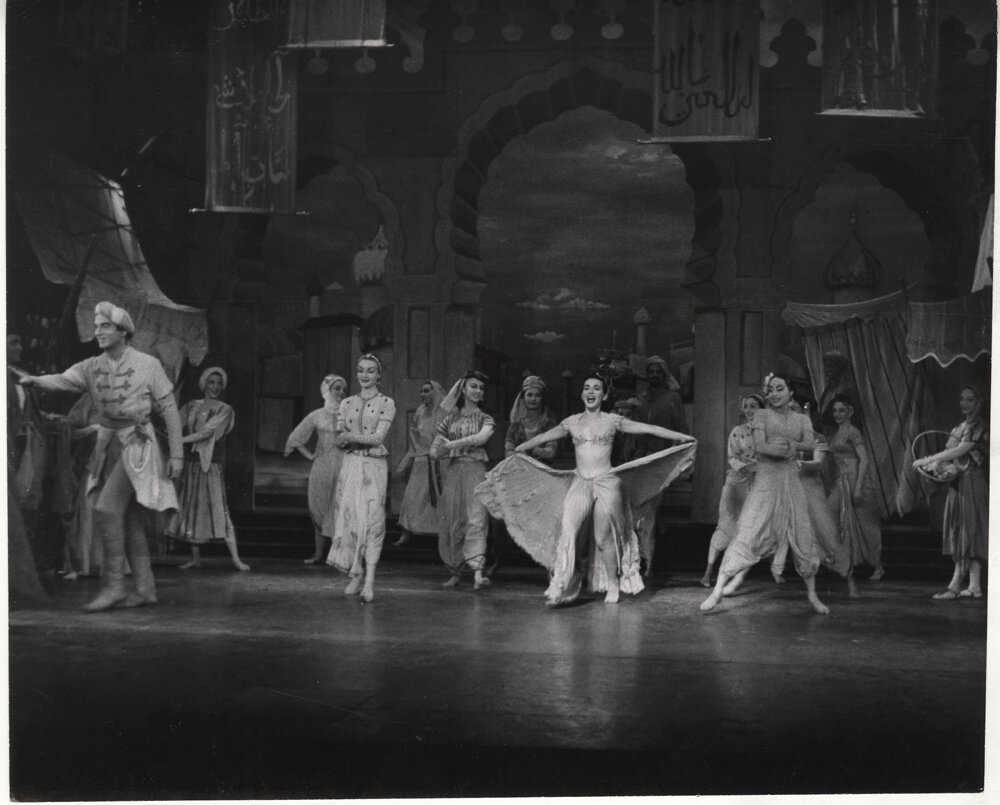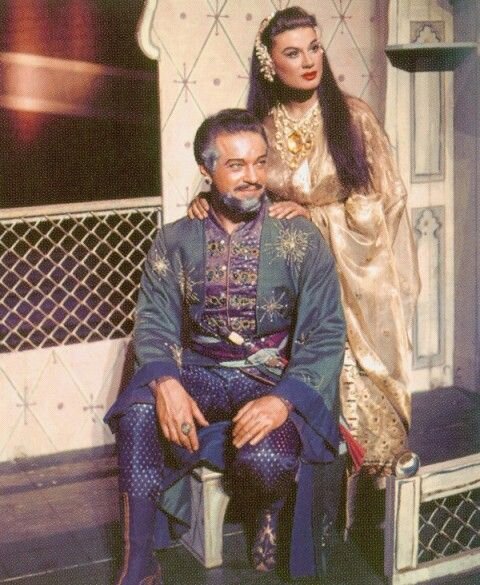Remembering Kismet
The composing team of Robert Wright and George Forrest were attracted to taking the music of other composers and adapting it into scores for musicals. They did this this with the musical of Edvard Grieg for the 1944 operetta Song of Norway and the 1965 Anya which drew from the works of Sergei Rachmaninoff. This is not the say that the team merely stole the music from these composers. They wrote lyrics to the music, adjusted music where necessary, assembled it in motifs, and even wrote their own melody here and there. Their most successful venture of this kind would be the 1953 Kismet, a show that utilized the compositions of Russian composer Alexander Borodin.
Joining Wright and Forrest in creating the musical Kismet were Luther Davis and Charles Lederer who set about adapting Edward Knoblock’s 1911 play of the same name for the musical stage. The story of Kismet is set in and around ancient Baghdad where the poet Hajj, our guide of sorts, who constantly finds himself in trouble in the marketplace. A scammer and a charming opportunist, we watch as Hajj weaves his way in and out of conflict (particularly with the law and demons of past scams gone awry). A subplot involves Hajj’s daughter Marsinah who falls in love with the young caliph (a Muslim civil and religious ruler of the day), who is unfortunately betrothed elsewhere. Of course, in true musical comedy fashion, everything works out with Caliph pardoning Hajj for all his crimes and then marrying the poet’s daughter.
Say what you want about their “borrowing” of other people’s melodies for the Broadway stage, Wright and Forrest created quite a lovely score for the musical Kismetwith lyrics that were poetic, witty, and wise. From the swirling, mystical overture to the final curtain call, they had assembled Borodin’s music in a dramatic way that captured the middle eastern setting of the story while also evoking a sense of magic. Along the way, they built on Borodin’s rich melodies to construct such musical theatre standards as the haunting “Stranger in Paradise” and the hypnotic “Baubles, Bangles, and Beads.” It is also important to note that Wright and Forrest were quite capable of writing complete scores in their own right, with such shows as Magdalena, Kean, and At the Grand.
Kismet opened on Broadway on December 3, 1953 at the Ziegfeld Theatre. Under the direction of Albert Marre, the show starred Alfred Drake (the original Curly in Oklahoma!) as Hajj, and a cast that also included Doretta Morrow, Richard Kiley, Henry Calvin, Joan Diener, and bodybuilder Steve Reeves. (Diener and Kiley would star opposite each other in the Marre-directed Man of La Mancha in 1965). Jack Cole choreographed the show. Kismet ran for 583 performances and won three Tony Awards: Best Musical, Best Actor (Drake), and Best Conductor (Louis Adrian).
In 1978, Robert Wright, George Forrest and Luther Davis reworked Kismet into the musical Timbuktu!, that followed the same basic story as Kismet, but reset the musical in Mali, the year 1361. Adding a few additional songs (based on Africa folk songs) to the piece, Timbuktu! featured an all African-American cast. It played Broadway’s Mark Hellinger Theatre, opening on March 1stand running for 221 performances. This incarnation of what was once Kismet starred Eartha Kitt, William Marshall, Gilbert Price, Melba Moore, and George Bell. The production was directed and choreographed by Geoffrey Holder (who had salvaged the troubled The Wiz a few seasons earlier).
Because of its tendency toward operetta, Kismet is rarely revived by musical theatre companies these days. You can, however, find the occasional production in opera companies where the score is typically given its due. Regardless of where you come across it, Kismet contains an enchanting score that deserves to be heard more often that it does and even if its book seems a bit old-fashioned by today’s standards, it is still a fine example of the drama, humor, and romance to be found traditional musical theatre.
Mark Robinson is the author of the two-volume encyclopedia The World of Musicals, The Disney Song Encyclopedia, and The Encyclopedia of Television Theme Songs. His forthcoming book, Sitcommentary: The Television Comedies That Changed America,will hit the shelves in October, 2019. Hemaintains a theater and entertainment blog at markrobinsonwrites.com.

